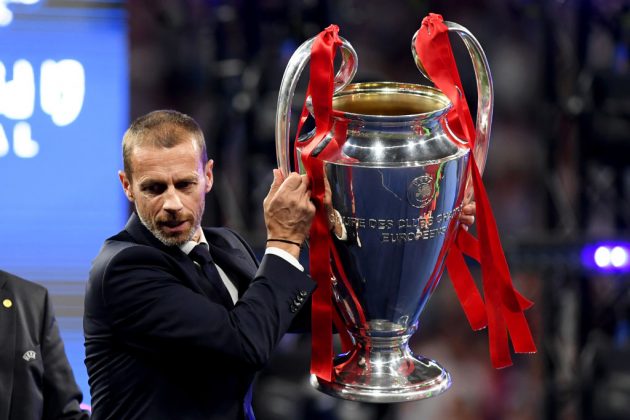The legal issues around a European Super League: Can clubs really be banned from domestic leagues and players barred from World Cups?

The battle lines over a European Super League may have been drawn but a legal fight that could last for years is only just beginning.
Football authorities including the Premier League and Uefa have warned the rebel clubs they will be kicked out of existing domestic and European competitions if they push ahead.
Players, too, face being banned from international competitions such as the World Cup and European Championship if their employers join the European Super League.
Organisers of the proposed new competition, meanwhile, have already begun legal action to strengthen their position.
Here, featuring the thoughts of leading lawyers, is a summary of the legal issues relating to a European Super League and what could happen next.
Can Uefa block the European Super League?
“Litigation certainly seems likely given the sums of money at stake,” says Neil Baylis, a partner and competition law expert at Mischon de Reya.
Both sides could seek to argue that the other is in breach of competition law, says lawyer Darren Bailey, consultant at Charles Russell Speechlys and formerly of the Football Association.
Clubs could claim an abuse of dominant position or other form of anti-competitive conduct if authorities prevent them from playing in both the European Super League and domestic competitions.
Football authorities, meanwhile, could argue that the rebel clubs are creating a cartel.
“It’s a very unusual set of circumstances,” Bailey told BBC Radio Five Live.
Why have European Super League clubs begun legal action?
Organisers of the European Super League have reportedly already taken steps to protect their legal position.
This could include asking national courts in the UK, Spain or Italy, where the confirmed clubs are based, to issue a declaration that the rules of Uefa, the Premier League and other bodies preventing a breakaway are anti-competitive and therefore unlawful.

A ruling of this kind could be made within a matter of weeks, but it would be almost certain to be challenged.
If referred to the European Commission, a verdict could take years. However, the clubs have taken a bullish stance far and could decide to go ahead with the European Super League in the meantime.
Could players be banned from the World Cup?
Fifa and Uefa have warned that players who participate in a breakaway European Super League will be barred from international football.
That would mean that next year’s 2022 World Cup in Qatar taking place without players from Real Madrid, Barcelona, Juventus, Inter Milan, Manchester United and Liverpool, among others.
However, footballers may point to a European Commission ruling last year that upheld the rights of leading ice skaters to take part in a new, unsanctioned competition.
An earlier ruling on a similar matter from the world of show jumping also appears to favour players’ rights.
“We expect big-name athletes will take whatever steps necessary to ensure they are able to compete at the highest level internationally,” says Simon Leaf, head of sport at Mischon de Reya.
How will existing player contracts be affected?
If Fifa and Uefa were to succeed in banning footballers from European Super League clubs from international tournaments, players could seek to terminate their contracts.
“Of course, sacrificing a lucrative playing contract in what will probably be the biggest club competition in the world would be a big step for any player,” says David Parsons, an employment lawyer at Mischon de Reya. “But those who genuinely value their international careers may have no choice.”
Even if bans prove unenforceable, a new league would be likely to mean the renegotiation of existing contracts tied to existing competition structures.
European v US sports models
Football’s bitter war over a European Super League has brought to the surface tensions simmering throughout sport, says Bailey.
“There’s a constant struggle going on in Europe between the American, closed league, entertainment and profit model and the European model, which is based on clubs, heritage, history and promotion through sporting merit,” he says.
Bailey argues that the European courts have failed to appreciate the extent to which sport needs to be regulated differently to other markets. “It’s not helpful to have dominant superclubs in a sporting world where the whole premise is based on uncertainty of outcome.”
Ultimately, he says, this issue could prove “an opportunity to really re-establish that European model over the American model of closed leagues, which has attracted quite a lot of hostility”.
